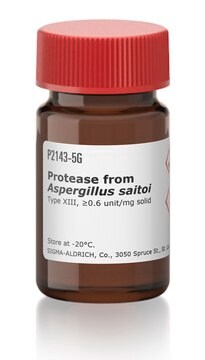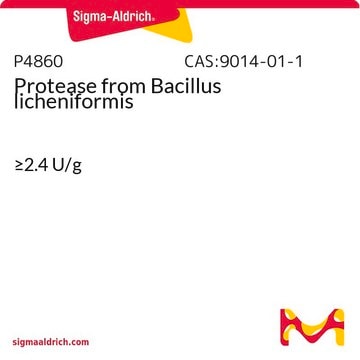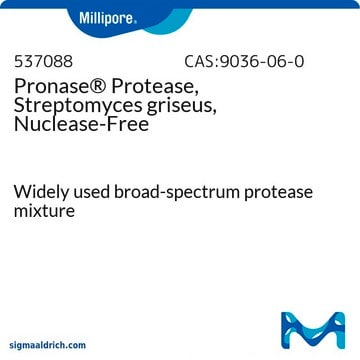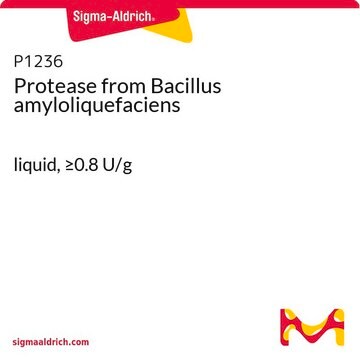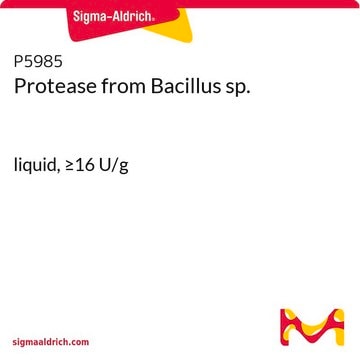P0652
Protease from Streptomyces sp.
Type XXI, ≥15 units/mg solid
Synonym(s):
actinase E, pronase E, Actinase E, Pronase E
About This Item
Recommended Products
type
Type XXI
Quality Level
form
powder
specific activity
≥15 units/mg solid
mol wt
~50 kDa
storage temp.
−20°C
Related Categories
Application
Biochem/physiol Actions
Physical properties
Inhibitors : Diisopropyl fluorophosphate, EDTA
Optimum pH : >=12
Optimum temperature : 60oC
pH Stability : pH 5.0 - 11.5 (25oC,24hr)
Thermal stability : below 50oC (pH 8.3, 15min)
Unit Definition
Physical form
Preparation Note
Signal Word
Danger
Hazard Statements
Precautionary Statements
Hazard Classifications
Eye Irrit. 2 - Resp. Sens. 1 - Skin Irrit. 2 - STOT SE 3
Target Organs
Respiratory system
Storage Class Code
11 - Combustible Solids
WGK
WGK 2
Flash Point(F)
Not applicable
Flash Point(C)
Not applicable
Personal Protective Equipment
Certificates of Analysis (COA)
Search for Certificates of Analysis (COA) by entering the products Lot/Batch Number. Lot and Batch Numbers can be found on a product’s label following the words ‘Lot’ or ‘Batch’.
Already Own This Product?
Find documentation for the products that you have recently purchased in the Document Library.
Customers Also Viewed
Protocols
This procedure is for informational purposes including assay Procedure, definition, and calculations for Protease
Our team of scientists has experience in all areas of research including Life Science, Material Science, Chemical Synthesis, Chromatography, Analytical and many others.
Contact Technical Service


